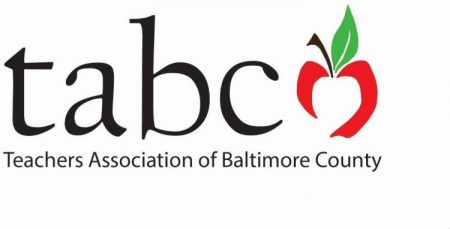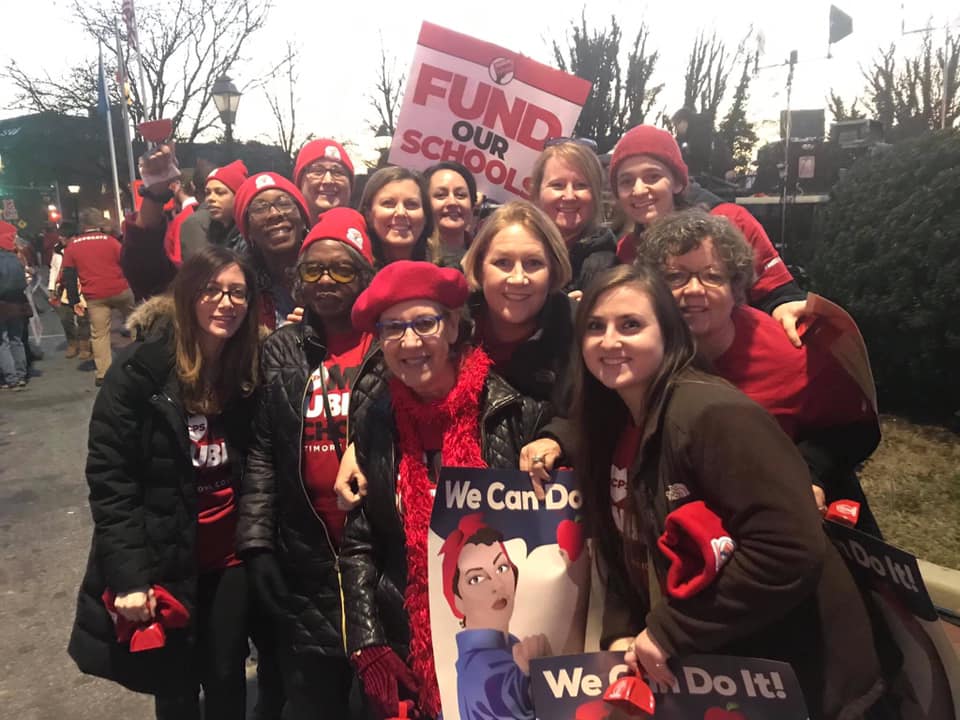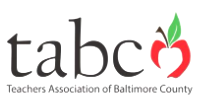Educating Through Crisis: TABCO Speaks out on Distance Learning
TABCO’s Goal: Establish learning systems that foster a successful 2020-2021 school year for students, families, and educators by collaborating with, and providing feedback to, BCPS throughout all phases of distance learning as it is designed, reevaluated, and modified.
TABCO members know that for both parents and educators, many questions exist around successful distance learning. Based on our collective experience in the spring of 2020 and our educational expertise, we are recommending some critical elements necessary for success. We want to create the most engaging and robust instruction possible while also setting fair and reasonable expectations for educators and families.
Prudence and caution necessitated this new way of teaching and learning. This is not our preferred method of teaching – we all want to be in our schools and buildings – but this way of teaching ensures the safety of our students, their families, and staff. We know that distance learning comes with new challenges and needs.
TABCO has been working since March to address these challenges and needs. TABCO’s Curriculum, Instruction and Climate Action Team has met extensively with BCPS leadership to address and troubleshoot distance learning issues since April; these meetings are ongoing. Additionally, TABCO has representation on the BCPS Design Team, the COVID Response Team, Reopening Plan Stakeholder Briefings and more. TABCO has and continues to negotiate around working conditions for members of our bargaining unit through a series of Memoranda of Understanding. We will continue to advocate for the needs of our educators and for the best possible educational experiences and outcomes for our students.
We have established the following framework which we feel is critical to a successful distance learning school year. This list is not exhaustive – we will continue to come forward with additional matters critical for student success- but these are necessary starting points for educating through this crisis.
FRAMEWORK FOR SUCCESS – DISTANCE LEARNING 2020-21
Curriculum:
- Grading policy – Establish a distance learning grading policy that sets clear expectations and maintain high standards. Academic integrity, dishonesty, and plagiarism concerns must be addressed. This policy should be created with input from multiple stakeholder groups including educators, administration, parents, and students.
- Curriculum – Prior to August 31, all educators should receive (at a minimum) the scope & sequence and standards of all courses they are teaching.
- SEL curriculum – Provide a clear structure for how to embed SEL content into lessons and classes. Provide resources and activities for educator use. Clarify the role of school counselors in SEL curriculum.
- Special Education/ELL accommodations – Provide curriculum and lessons with UDL principles. This should include multiple means of engaging in lessons, multiple levels of rigor or content, and a variety of methods of expression so all students can access BCPS created materials. UDL support is available at http://udlguidelines.cast.org/.
- Curricular Materials – Provide necessary supplies to students at least one unit ahead of when they will be needed. This includes needed manipulatives, basic school supplies and a containment device to keep materials organized.
Technology:
- Access to Technology – Prior to August 31 for educators, and prior to September 8 for students, provide all necessary technology for teaching and learning. This includes BCPS-issued devices.
- Technology resources – Provide materials for both elementary and secondary levels that address basic technology support. These should be easy to understand and centrally located for parents, students, and educators. Provide curricular materials and/or resources for teaching foundational tech skills such as typing and file management.
- Google Meets – Continue to make improvements in Google Meets by expanding allowed extensions and adding features. Examples of requested features include breakout rooms, limited choices for virtual backgrounds for student use, raise-hand feature, polling, and non-verbal visual feedback such as “thumbs up.”
Student Expectations:
- Attendance policy – Set clear and specific expectations for elementary and secondary at a county level. At the elementary level attendance normally is taken once at the start of the school day, but a distance learning attendance policy needs to consider how much synchronous time students are present for and note when they are missing specific subjects. There needs to be a county-wide system for tracking and recording attendance.
- Student Handbook – Update the Student Handbook with expectations for distance learning. Address topics such as unauthorized recording. Require parent and student acknowledgment (as this will be digital).
- Netiquette– Incorporating trauma informed Social Emotional Learning practices, school communities should create recommendations for students and educators during distance learning and all virtual meetings. Access to this information should be available to all stakeholders. There are many resources available at https://scs.bcps.org/departments/social_emotional_support.
Educator Concerns:
- Educator input – Provide genuine opportunities for educator input. Educators should be included on task forces and planning groups and be able to provide feedback prior to final decision-making and implementation of new initiatives.
- Distance Learning Communities – Prior to August 31st, establish Schoology groups for educators to share and collaborate. These should be arranged by grade level for elementary and by content for special areas and secondary. See below for more detailed expectations.
- Workload and Conditions – Ensure that the TABCO Master Agreement and MOU will be upheld, including workload, duty free planning time, duty hours and after school activities. Teacher workload should be doable during their duty hours.


